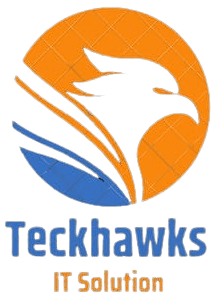20 Most Popular Backend website development Frameworks in 2022
Laravel
Laravel is a PHP Framework known for its efficiency and speed. Another benefit of using Laravel is that it comes bundled with many packages that allow you to work without having to install any extra libraries. They also provide good documentation. Other features of Laravel include a strong community, active development, and a huge number of extensions. Laravel is a full-fledged framework, meaning you can make use of its functionality in almost every aspect of your application.
Codeigniter
Codeigniter is a PHP framework built by the same guys behind WordPress. It is lightweight, simple, and secure. It is a great choice if you want something quick, stable, and ready for production. You have complete control over everything, which means you don't need to start learning how to program PHP from scratch. You get a solid foundation of code so you can build upon it however you want. If you're looking for a fast-growing platform, then Codeigniter might be what you're looking for.
Django
Django is an open-source Python Web framework created by Southwestern Research Institute (SWRI) at MIT. Django was designed to make rapid Web application development faster and easier. Django uses Python syntax, making it easy to learn and use. Django is written in Python, and is based on the MVC (Model View Controller) design pattern. Django includes a number of features to help developers build robust applications. Popular among developers is its built-in admin interface for managing content types, users, and data models.
Flask
Flask is a simple, fast, and powerful microframework for building web applications following Model-View-Template architecture. It follows PEP-3333 style guide and makes it easy to create clean code. It's a lightweight framework that helps you write highly performant code without sacrificing flexibility, speed, or convenience.
NodeJS
Node.js is a platform built around Google's V8 JavaScript runtime environment, Google Chrome’s JavaScript engine, and the Event Loop model of I/O (node-style). Node.js uses an event-driven, non-blocking I/O model that makes it lightweight and efficient - perfect for data-intensive real time applications that run across distributed devices. It was designed to help build fast, scalable network services.
Express
Express is an open-source HTTP server framework for node.js. It provides a robust set of features including request routing, content negotiation, cookie sessions, streaming responses, file uploads, etc. It also includes middleware functions that make building modular APIs easier, and it supports many popular frameworks out of the box.
Pyramid
Pyramid is a high performance, object-oriented, non-blocking WSGI/HTTP server for developing RESTful APIs and distributed web applications using Python. It supports many database backends including SQLAlchemy, MySQLdb, PostgreSQL, and SQLite. Its modularity and extensibility allow it to be easily extended or customized without modifying core functionality. Among its features is a built-in templating system that provides comprehensive access control.
Mako
Mako is a Python template engine, similar to Jinja templates. It offers an extremely flexible templating language that lets you compose HTML pages directly from python objects. In addition to providing syntactic sugar for creating dynamic websites, it also provides tools for validating forms and handling user interaction. Mako is completely free software under the GNU GPL license and runs on both Linux and Windows platforms.
Tornado
Tornado is a Python asynchronous networking framework. It does not require threads or processes to be spawned, thus making it suitable for writing scalable network servers. It is event driven and scales well, while still being easily understandable by humans. It is written in Python and is licensed under the Mozilla Public License 2.0.
Werkzeug
Werkzeug is a small library for developing WSGI middleware and application controllers. It provides a simple HTTP client API for testing purposes and adds a bunch of useful extensions to the existing urllib2 module.
CherryPy
CherryPy is a high performance, feature rich, community supported web framework for Python. It is written in 100% pure Python and can be deployed on any platform that Python supports. It is compatible with all current versions of Python. It is developed under the BSD license and is maintained by the PyPA organization.
Yii
Yii is a C++ based open source MVC (Model View Controller) PHP Web Development Framework. It was designed to simplify complex tasks and make them easy for beginners. Many developers find Yii easier to learn than traditional platforms like CakePHP and Symfony. It offers robust security and flexibility while staying consistent with best practices. Yii is especially popular in Japan.
Zend Developer
Zend developer is a free open-source toolset for PHP development. It focuses on the following four main concepts; scalability, security, performance and compatibility. Zend developer provides a set of tools that focus on these topics, making it easier to develop high performing applications. Zend developer offers modularity and extensibility, both of which are powerful tools when building custom solutions. Its documentation is concise and thorough, providing valuable insight into the capabilities of each module. You may not be familiar with Zend, but there are many reasons you should consider learning about it.
Slim Framework
Slim Framework is a free and open-source PHP microframework that helps you build RESTful APIs. It aims to help you create clean, scalable, and maintainable APIs. Slim uses PSR-0 autoloading, a convention for naming classes, and HTTP routing. There are plenty of tutorials online that teach you how to create a REST API with Slim.
Silex
Silex is a PHP microframework designed to make developing small, focused web apps easier. It is similar to Slim, but has some additional features, including caching abilities. While Slim is useful for creating RESTful APIs, Silex is specifically geared towards creating smaller web applications. You'll find that Silex is often compared to Lumen due to their similarities.
Symphony
Symphony is a modern PHP web framework designed to ease development and boost performance. It supports RESTful services, databases, sessions, file uploads, and much more. Symphony's design is intended to help you create highly performant and reliable websites. Symphony also comes with a variety of third party extensions available to extend its core functionality.
Koa
Koa is a minimalistic framework for node.js based on express. It aims to make developing RESTful APIs simpler for both beginners and experts. In addition, koa offers some nice utilities that provide developers with the tools they need to develop faster. One of its most useful features is that it allows you to use ES2015 syntax without sacrificing performance.
Hapi
Hapi is a high-performance, feature-rich and simple to learn API framework for node.js that is well suited for building RESTful APIs. It comes with powerful features for authentication, authorization, rate limiting, error handling, logging, internationalization, caching, and much more.
Connect
Connect is a low-level HTTP client library for node.js. Its purpose is to allow you to create HTTP clients that have zero dependencies on the surrounding ecosystem. It is compatible with any version of npm greater than 1.0.9.
Multer
Multer is a node.js module for parsing multipart/form-data requests and bodies. As such, it allows us to easily parse form fields and files uploaded via HTML forms.
Socket.IO
Socket.IO is a cross-platform realtime application framework for node.js developed by LearnBoost. It connects sockets using long polling or a WebSockets connection. The goal of Socket.IO is to take care of the complexities of maintaining connections and the details of performing bidirectional communication between nodes.



